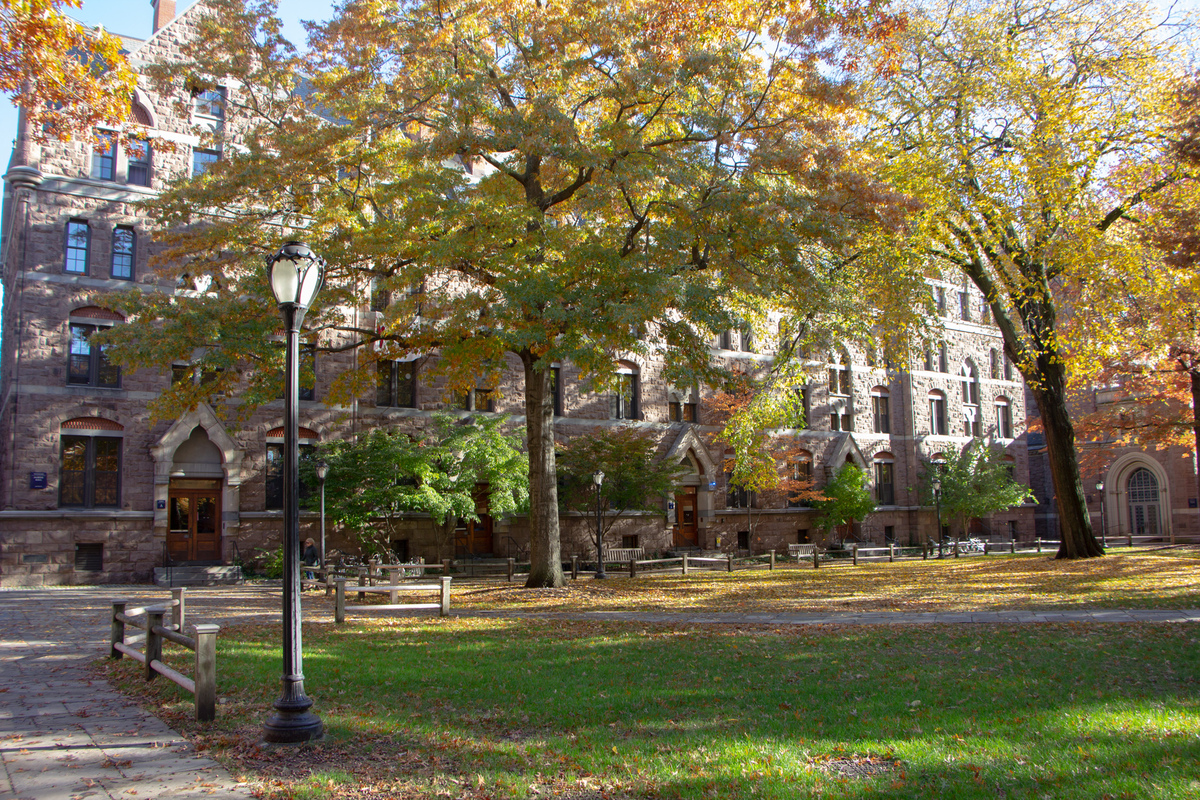Students face heavy housing shortages and last-minute changes
As alums observe a decline in Yale’s residential college communities, the class of 2024 faced severe shortages in the housing process this past spring, forcing many to live off-campus or be annexed in other colleges.

Yale Daily News
With the historic size of the class of 2025, the class of 2024 faced housing shortages this past spring in the housing draw process. Additionally, last minute decisions about isolation housing led some students to be relocated to the Omni Hotel this past school year.
Per Yale policy, undergraduate students are required to live on-campus for their first two years at Yale. In the spring of 2021, the University decided that students in the class of 2025 in Branford, Davenport, Morse and Saybrook Colleges would live in their residential colleges during their first year, rather than on Old Campus, as per tradition. Students from these four colleges in the class of 2024 are instead living on Old Campus this year. Next year, however, the University is reverting back to its typical housing arrangement. First-years — the class of 2026 — in these colleges will live on Old Campus during the 2022-23 academic year, and sophomores — the class of 2025 — will return to their residential colleges.
However, the housing shortages have forced rising juniors who want to remain on-campus to find off-campus living options, as the class of 2024 is also large due to the amount of students who were originally in the class of 2023 but took gap years due to the COVID-19 pandemic. Dean of Yale College Marvin Chun told the News that the University aimed to find on-campus alternatives for students who could not live in their residential colleges although he expected housing to “be tighter.”
“We’re working right now to try to maximize the annex housing and those kinds of options that are around campus,” Chun said. “Some students may need to be annexed … which is the case every year and was the case even this year. I think what helps with annexing is just making things as predictable as possible for students so they can make the right choices about whether they want to do annexing or whether they want to move off campus. I think what students need is good information.”
Given the housing shortages, Chun emphasized the importance of connecting the class of 2024 to their residential college communities, at a time when some alums have observed a decline in the residential college communities as more students live off campus.
While some students living off campus engage with their residential college communities, the majority of students who the News spoke to who live off campus told the News living off campus made them less connected to their residential college. The shortages in housing have forced many members of the class of 2024 to move off campus at short notice. cq
Beatrice Maron Schaeffer ’24 wrote to the News that after the suite she planned to live with in Berkeley College disbanded, they were given two days to decide to either live in a single in annexed housing in McClellan Hall or find off campus housing. If they chose to live off campus later after deciding to live in McClellan, they would be fined, and not all colleges offered annexed housing to all students who were unable to secure housing within their own college.
Schaeer added that she has concerns about how the University plans to accommodate the increasing class sizes in coming years, as these shortages come at a time when Yale admitted 2,234 students from the largest applicant pool in the University’s history.
“Why boast about the Class of ’26 being your largest class [of applicants] yet when you barely have enough housing for your current students?” Schaeffer wrote to the News. “And especially since the ones affected continue to be the ’24s, students who stuck it out during the beginning of the pandemic and who have barely had the dorm experience we all hoped to have by coming here. I can only begin to imagine how badly housing will go for next year’s rising juniors.”
There have also been housing issues in the past year due to confusion over isolation housing. Six weeks into the fall semester, a group of students was still living in the Omni New Haven Hotel at Yale due to a last minute decision to use McClellan Hall for isolation housing. The decision to expand isolation housing to use both Arnold Hall and McClellan Hall came due to a nationwide Delta-variant spike in COVID-19 cases.
47 students were originally planning on living in McClellan, but 27 were still living in the Omni six weeks after school, while the other 20 found alternative on-campus housing.
Hank Michalik ’24, who originally planned to live in McClellan, told the News that University administrators worked with him and his roommate to find open on-campus housing, ultimately moving them into a suite in Silliman College.
“We thought that was a pretty good deal,” Michalik told the News. “Silliman is pretty nice as well, … [but it’s] a pretty bad decision to abruptly kick everyone out of [McClellan]. If you’re going to be in college, why would you want to be living alone in a hotel in New Haven?”
Yale’s first residential colleges were opened in 1933.



